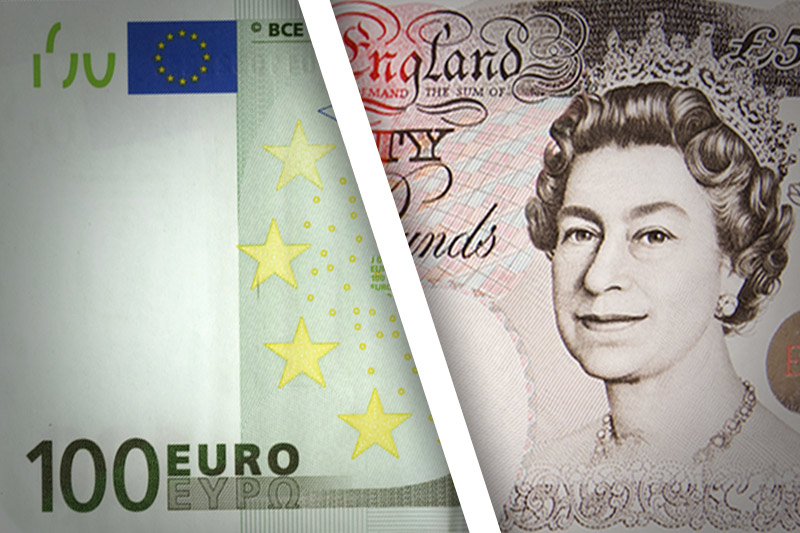Investing.com’s stocks of the week
Investing.com - The euro slipped to the session low against the pound on Monday, after better-than-forecast U.K. manufacturing data saw investors trim back short-term expectations for another round of easing from the Bank of England.
EUR/GBP hit 0.7907 during European early afternoon trade, the pair’s lowest since Thursday; the pair subsequently consolidated at 0.7909, down 0.26%.
The pair was likely to find support at 0.7888, the low of August 24 and near-term resistance at 0.7929, the session high.
Markit said that its U.K. manufacturing purchasing managers’ index rose to 49.5 in August from a reading of 45.4 in July, beating expectations for an increase to 46.2, and moving much closer to the 50 level that separates growth from contraction.
Output rose solidly at consumer goods producers, while intermediate goods companies saw a marginal return to growth.
The rate of decline in new export orders also eased sharply, despite weak demand from Europe.
The euro continued to be supported by expectations that the European Central Bank is working on measures to help stabilize the euro zone's sovereign debt markets ahead of its upcoming meeting on Thursday.
But concerns over the outlook for growth in the euro zone weighed after revised data showed that the region’s manufacturing sector contracted for the 13th consecutive month in August.
Markit said the bloc’s manufacturing PMI rose to 45.1 from July's 37-month low of 44, but remained well below the 50 mark.
Later in the day, ECB President Mario Draghi was scheduled to testify before the European Parliament's Economic and Monetary Affairs Committee, in Brussels.
The pound was higher against the U.S. dollar, with GBP/USD up 0.17% to 1.5893.
Trade looked likely to remain subdued on Monday, with markets in the U.S. closed for the Labor Day holiday.
EUR/GBP hit 0.7907 during European early afternoon trade, the pair’s lowest since Thursday; the pair subsequently consolidated at 0.7909, down 0.26%.
The pair was likely to find support at 0.7888, the low of August 24 and near-term resistance at 0.7929, the session high.
Markit said that its U.K. manufacturing purchasing managers’ index rose to 49.5 in August from a reading of 45.4 in July, beating expectations for an increase to 46.2, and moving much closer to the 50 level that separates growth from contraction.
Output rose solidly at consumer goods producers, while intermediate goods companies saw a marginal return to growth.
The rate of decline in new export orders also eased sharply, despite weak demand from Europe.
The euro continued to be supported by expectations that the European Central Bank is working on measures to help stabilize the euro zone's sovereign debt markets ahead of its upcoming meeting on Thursday.
But concerns over the outlook for growth in the euro zone weighed after revised data showed that the region’s manufacturing sector contracted for the 13th consecutive month in August.
Markit said the bloc’s manufacturing PMI rose to 45.1 from July's 37-month low of 44, but remained well below the 50 mark.
Later in the day, ECB President Mario Draghi was scheduled to testify before the European Parliament's Economic and Monetary Affairs Committee, in Brussels.
The pound was higher against the U.S. dollar, with GBP/USD up 0.17% to 1.5893.
Trade looked likely to remain subdued on Monday, with markets in the U.S. closed for the Labor Day holiday.
